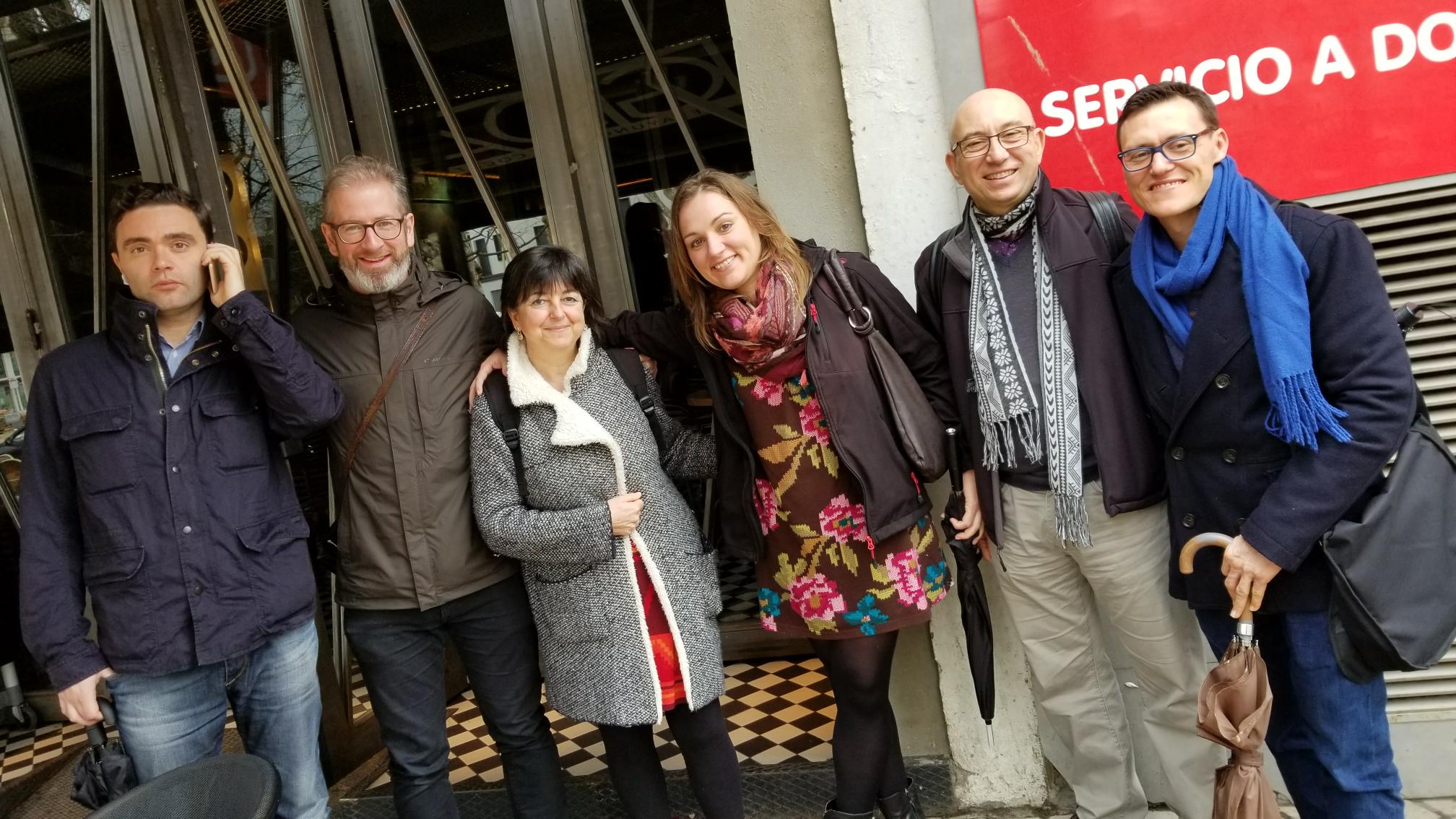keepin’ it REAL/Mantente REAL: Cultural adaptation for southern Spain

The target sample consisted of 9th graders attending two randomly selected experimental and two control schools from public schools in Sevilla, Spain with a strong representation of Roma (Gypsy) families and recent immigrants.
Flavio F. Marsiglia, PhD
David A. Rubio, PhD
Cristina V. Quesada, PhD
Isotta M. Fadden, PhD
Stephen S. Kulis, PhD
In collaboration with the University Pablo de Olavide of Seville, Spain, GCAHR culturally adapted the keepin’ it REAL curriculum for implementation in southern Spain.
Students came from four secondary public schools in the province of Sevilla. All schools were selected from low socio-economic neighborhoods with a strong Roma (Gypsy) and recent immigration representation.
The project goals were to develop a culturally adapted keepin’ it REAL curriculum for Sevilla, Spain and assess the acceptability and feasibility of the program from the perspective of multiple institutions and researchers.
Qualitative (student focus groups) and quantitative (survey) approaches were employed to provide a profile of substance use exposure, existing strategies for resisting substance use and prevention needs.
This information was employed to culturally adapt the keepin’ it REAL (Mantente REAL) program to the social context. New videos for the program were scripted and acted by local students, under the direction of a professional videographer.
In a pilot test of the program, students in four secondary public schools (N = 290) were randomly assigned by school to experimental (implementing) or control (comparison) conditions.
The findings highlighted fundamental cultural elements in the prevention of substance use in adolescents and pointed to the need for cultural adaptations in several areas.
The cultural adaptation sought to present messages through situations and contexts of risk representing the actual lives of the adolescents, take into account the perceptions of risk, language and incorporate scripts written by the teens themselves.
Cutrín, O., Fadden, I.M., Marsiglia, F.F. et al. Social Validity in Spain of the Mantente REAL Prevention Program for Early Adolescents. J of Prevention 44, 143–164 (2023). https://doi.org/10.1007/s11121-016-0705-9
Cutrín, O.; Mac Fadden, I.; Ayers, S.L.; Kulis, S.S.; Gómez-Fraguela, J.A.; Marsiglia, F.F. Applicability of the Theory of Planned Behavior for Predicting Alcohol Use in Spanish Early Adolescents. Int. J. Environ. Res. Public Health 2020, 17, 8539. https://doi.org/10.3390/ijerph17228539
Cutrín, O., Kulis, S., Maneiro, L., MacFadden, I., Navas, M. P., Alarcón, D., Gómez-Fraguela, J. A., Villalba, C., and Marsiglia, F. F. (2021). Effectiveness of the Mantente REAL Program for Preventing Alcohol Use in Spanish Adolescents. Psychosocial Intervention, 30(3), 113 - 122. https://doi.org/10.5093/pi2020a19
Marsiglia, F, Mac Fadden, I, Villalba, C. (2023). La participación de los jóvenes en la creación de programas de prevención culturalmente congruentes. Formación en liderazgo juvenil para la prevención (pp. ). Octaedro.